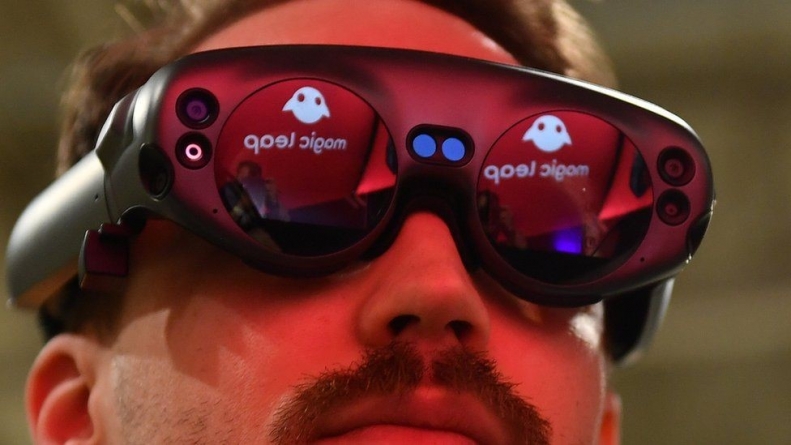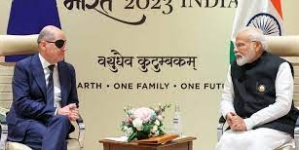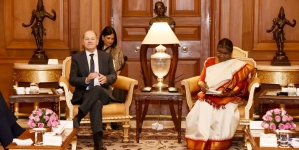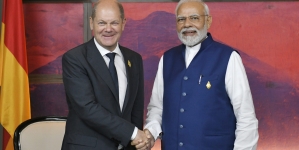-
IRELAND: “From 800 to 7,000”: Ireland’s Education Appeal Soars Among Indian Students - 14 hours ago
-
TORONTO: Canada Sets Weekly Work Hour Limit For Indian Students At 24 - 2 days ago
-
TORONTO: India strongly protests ‘Khalistan’ slogans at a public event attended by Canadian leaders - May 2, 2024
-
TOKYO: Japan Offers Scholarships To Indian Students Pursuing Research - May 1, 2024
-
ZAGREB: India-Croatia Foreign Office Consultations (FOC) - May 1, 2024
-
BUCHAREST: Government Of Romania To Offer Scholarships To Indian Students - April 30, 2024
-
WASHINGTON: India Now Second-Largest Source Country For New Citizens In US- Report - April 30, 2024
-
LONDON: Run For Modi” Event In London To Drum Up Support For PM Modi - April 29, 2024
-
LONDON: Indian-Origin Candidate On How He Plans To Win London Mayoral Polls - April 28, 2024
-
HARVARD: No Country Is Perfect”: Physics Wallah Urges Indian Students At Harvard, Stanford To Return - April 27, 2024
BERLIN: Magic Leap reveals new AR headset and fresh funding
BERLIN: Augmented reality (AR) firm Magic
Leap has revealed the second version of its headset, alongside $500m in new
investment.
Unlike virtual
reality (VR), the AR Magic Leap headsets project digital 3D objects on top of
the real world.
The new
headset is intended primarily for business use and has, the firm says, a wider
field of view.
Magic
Leap has faced criticism for the time it has taken to develop working
prototypes and products.
This
week’s $2bn valuation and $500m of fresh investment is almost exactly the same
as a funding round in 2014 which also valued the company at $2bn, as highlighted by tech news site TechCrunch.
The site
notes the company has attracted in total $3.5bn in funding since it was founded
in 2010 – and wrote: “It seems investors are still addicted to giving them
money.”
The
company’s first headset sales did not begin until 2018, more than three years
after the Florida firm released a teaser video of the product.
Media caption, Putting Magic Leap
to the test in 2018
The
company faces competition from well-funded rivals developing AR headsets of
their own such as Nreal, Microsoft, Facebook and Snapchat.
The BBC is not responsible for
the content of external sites.View original tweet on Twitter
Business
uses for AR could include workers who need access to important information
while keeping their hands free.
Examples
highlighted by Magic Leap include:
- surgery in which scans and
other reference data is needed while performing an operation - manufacturing, by sharing 3D
models of items being worked on or getting remote assistance from a
technician - design, in which multiple
users can view and discuss changes to 3D objects at once
Showcasing the Magic Leap 2, chief executive Peggy Johnson –
who joined the company last year from Microsoft – said the headset would be the
industry’s “smallest and lightest device built for enterprise
adoption”.
It has,
she claimed, the largest field of view in the industry, and also features
“dimming” – which darkens the background environment, making the
glasses easier to use outdoors and in bright settings.
























